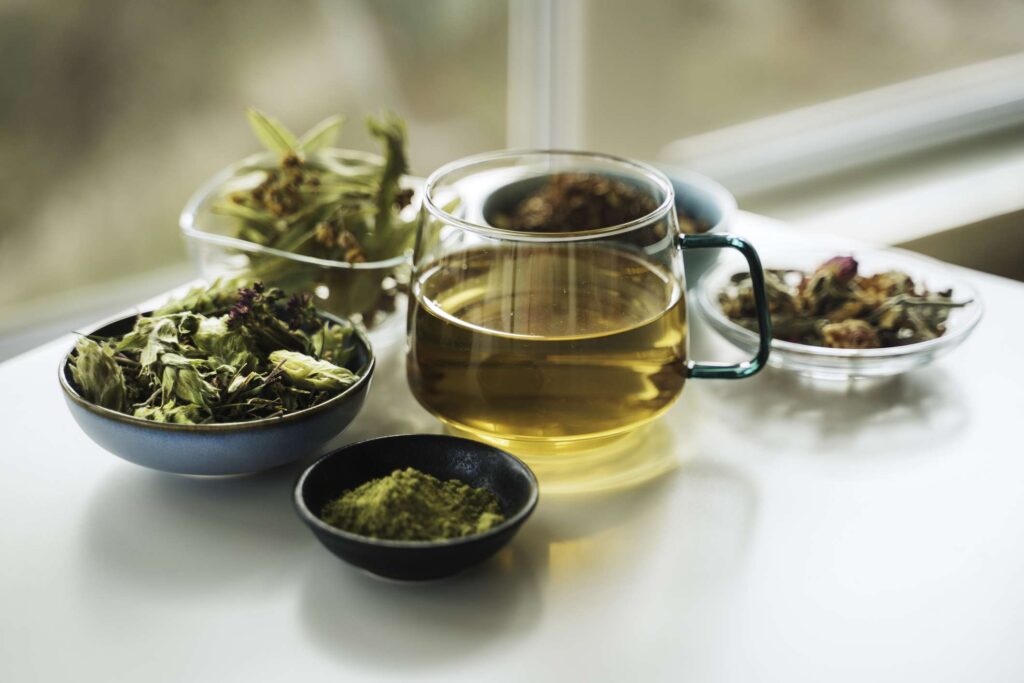Essiac tea is an herbal tea made from a blend of burdock root, slippery elm, Indian rhubarb, and sheep sorrel. Essiac tea is commonly promoted as a natural remedy for cancer, inflammation, and detoxification. However, more scientific evidence is needed to confirm these potential benefits.
The herbs in Essiac tea, especially burdock root and slippery elm, are rich in beneficial plant compounds like flavonoids and polyphenols, which have strong antioxidant properties.
Antioxidants are substances that help prevent or delay cell damage. An older test tube study found that Essiac tea could reduce harmful molecules called free radicals and protect DNA from damage. The antioxidant activity of Essiac tea can vary depending on concentration and the mixture of herbs used.
Research suggests that the plant compounds in Essiac tea may help alleviate inflammation under certain conditions. One test tube study found that Essiac reduced inflammatory markers in inflamed immune cells. However, it increased inflammation markers in cells that were not inflamed. Further studies are needed to determine the effects of Essiac tea on body inflammation.
Some people use Essiac tea as an alternative treatment for cancer. They say it can help shrink tumors, reduce side effects, and help people live longer.
In the early 1980s, Canada’s health agency reviewed reports on 86 cancer patients treated with Essiac. The few patients who remained stable had also received conventional cancer treatments, so any benefits couldn’t be clearly linked to Essiac. More recent research is conflicting and limited to test tube and animal studies.
An older test tube study found that Essiac may slow the growth of prostate cancer. Similarly, a newer animal study showed that Essiac reduced the growth of several types of cancer cells and improved overall lifespan.
Many other studies have shown no benefit of the herbal tea on cancer. In one study, high doses of Flor-Essence, a type of Essiac tea, may actually increase tumor growth in animals with breast cancer.
There is currently no human research to support the use of Essiac tea for cancer treatment. The only available studies have been done with test tubes or animals. More research is needed to understand how Essiac tea affects the human body and whether it is safe or helpful for people with cancer.
The nutritional content of Essiac tea can vary depending on the brand and preparation method, though it’s generally low in calories and a good source of magnesium and iodine. It also provides smaller amounts of several nutrients, including calcium, potassium, zinc, and iron.
On average, a three-ounce brewed serving provides:
- Calories: 8
- Fat: 0 grams (g)
- Carbohydrates: 3 g
- Sodium: 7 milligrams (mg)
- Fiber: 2 g
- Protein: 0 g
- Magnesium: 83 mg, or 20% of the Daily Value (DV)
- Iodine: 22 micrograms (mcg), or 15% of the DV
- Iron: 1.66 mg, or 9% of the DV
Some people choose to take Essiac in supplement form rather than drinking it as a tea. Essiac is available as:
- A liquid extract that dissolves in water
- Capsules
- Drops
- Powder that you mix into water
People may take Essiac supplements to help with immunity, detoxification, pain, and side effects of cancer treatment. The herbal tea has also been used to treat diabetes and acquired immunodeficiency syndrome (AIDS). However, no human research supports these uses.
There is limited information on the recommended dose of Essiac, likely due to a lack of human research. Most manufacturers suggest taking it at least an hour before or after eating, typically over 12 weeks.
The most commonly reported side effects of Essiac tea are nausea and vomiting. Other potential side effects include:
- Swollen glands
- Decreased appetite
- Headaches
- Flu-like symptoms
- Skin inflammation or irritation
- Frequent urination or bowel movements
Essiac may interact with medications that are metabolized by cytochrome P450 enzymes, including the blood thinner Coumadin (warfarin).
Talk to your healthcare provider about the proper use, dosage, and potential side effects before incorporating Essiac into your diet.
Essiac tea has an earthy, slightly bitter flavor. It is often consumed in a concentrated form, typically 2-4 ounces per day, served hot or iced.
If you’re interested in consuming Essiac tea, consider the following tips:
- To brew Essiac tea, add the herbal mixture to boiling water and steep for 5-10 minutes before straining into a glass container
- Start with a small amount and gradually increase as tolerated
- Avoid consuming more than recommended by the manufacturer
- Add a drizzle of honey for a touch of sweetness or additional spring water to dilute it
- Store in an airtight container for up to two weeks in the refrigerator
Essiac tea is made from a blend of herbs that have antioxidant and anti-inflammatory properties. It’s often promoted as a natural remedy for cancer, pain, diabetes, and other health issues. Research on Essiac is limited, and there’s no human research showing that it helps treat cancer. Some animal studies also suggest it may have harmful effects.
If you’re considering using Essiac tea for health reasons, talk with your doctor to help determine whether the potential benefits outweigh the risks.


